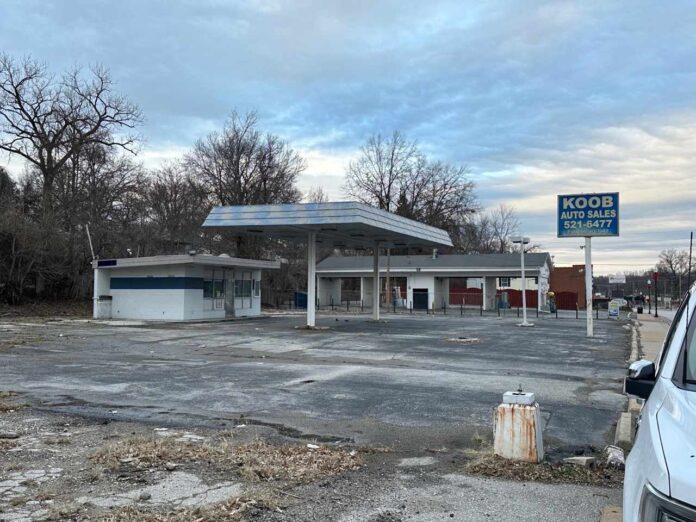Planning and zoning is a delicate and technical subject. It deals with government control of high value private assets, namely, real estate. So it is particularly important that the planning commission put aside politics as it discharges its duties. In their meeting this week, they utterly failed to do so.
In their meeting, they considered two requests by Mike Palmer, who owns a substantial amount of real estate in Ferguson, and also happens to serve on council. The first, the merging of several vacant residential lots which do not meet the city’s current requirements for development, was recommended unanimously, though not without the asking of irrelevant questions. Changing lot boundaries, where there is no change in zoning, does not need to go before the planning commission or council at all. The use of the merged lots, so long as it complies with zoning, is none of the commission’s business.
The commission then moved on to the matter of a conditional use permit. Mr. Palmer owns a property at 829 S. Florissant, at which Koob Auto Sales operated for decades. There is a car wash on one side, a vacant lot on the other side, and commercial properties across the street. The property is in a DT-3 zoning district, making it subject to our city’s form-based code. This poorly drafted code seeks to build a walkable business district, but extends far beyond the area in which that will happen, and imposes development restrictions which are absurd. Even so, it was the city’s opinion that allowing this property to be used for its longstanding purpose did meet the zoning standards. Unfortunately, planning commission chair Adrian Shropshire, and commission member Jamil Franklin, felt otherwise. Franklin’s vote was particularly pernicious, based upon his dislike for a particular type of used car dealership. He had no reason to believe that Ferguson Motor Service, who proposes to sell cars there, would engage in the practices he dislikes, but for the purpose of zoning, that is not relevant. I dislike predatory car dealers as much as anybody, and have steered a great many people away from patronizing them over the years. But not every small used car lot is predatory, and in any case, members of the planning commission must not bring irrelevant considerations into their debate.
The greater problem, unfortunately, is the form-based code itself. For the walkable portion of the downtown business district, a restrictive code makes sense. Last year’s proposal to put an adult daycare a few doors south of the Whistlestop was a foolish one. But placing the same level of restrictions on areas which have never been part of the walkable business district and never will be is nothing but a detriment to development in the city. And a planning commission which is arbitrary and political is an even greater detriment.
The form-based code includes a list of business types that are permitted in each district. Some are permitted by right, others require a special use permit. Anything which is not on the list is prohibited. In DT-3, “automotive parts and service” is a permitted use. So a high traffic automotive business like Meineke would be allowed. The city’s opinion was that a car dealership was acceptable in that category. It’s a stretch, albeit not a completely unreasonable one. But if it’s not permitted, consider the even more ridiculous position this puts us in: A “pick and pull” lot, where junk cars are parked indefinitely and people remove and purchase parts from them, would be a permitted use, but a nice used car dealership, with properly parked cars offered for sale, would not.
Even more odd is the fact that we allow group homes throughout the city. These group homes can house up to 8 residents, who must be “mentally or physically handicapped” along with two guardians. So, it’s acceptable under our zoning code that an organization buys the house next door to you, and fills it with a constantly changing group of recovering drug addicts, but it’s not ok to sell cars on a car lot. Unless, of course, that lot happens to be at the corner of Ames and Chambers, which is spot zoned to allow auto dealerships.

Of course, there are permitted uses in the DT-3 zoning district. For example, Mr. Palmer could erect a hotel, open a museum, or put up an office building. He could also open a “book, magazine, and newspaper store” or a “china and glassware shop” or a dealer in “luggage and leather goods.” The asinine types of businesses included in this list are such an impediment to good development that, so long as they remain in place, they will make the difficult task of commercial development in Ferguson a near impossibility. Ultimately, we need to narrow the scope of the form-based zoning districts, allowing appropriate development south of Suburban. And we need planning commission members who understand that the law, and not politics, must govern their actions. Until we have those things, commercial development in Ferguson will continue to suffer.
